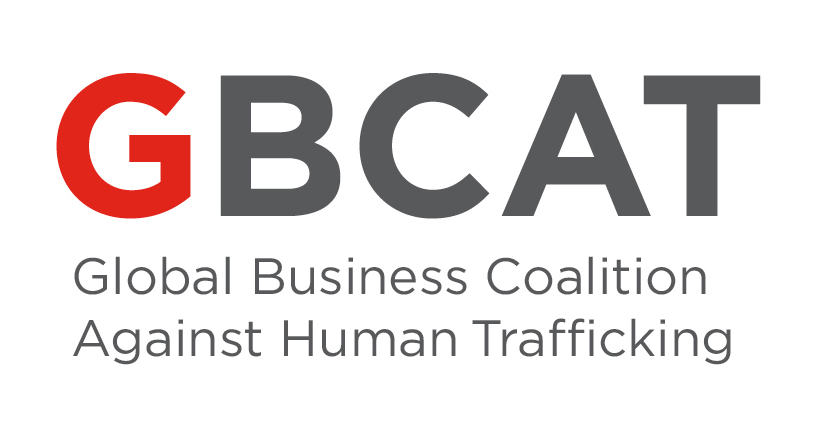GBCAT partnered with The Mekong Club to host a webinar on Empowerment and Employment: How Business can Support Survivors of Human Trafficking. The session explored how the private sector can support the long-term recovery and rehabilitation of survivors of human trafficking, including through providing training and employment opportunities.
GBCAT publishes new infographic on Deceptive and Coercive Recruitment Practices
GBCAT has developed a series of one-page infographics to accompany the Corporate Supplier Toolkit on Addressing Forced Labor and other Modern Slavery Risks. The first infographic highlighted how business can avoid risks of forced labor. GBCAT has now released a second infographic on Deceptive and Coercive Recruitment Practices, which outlines key risks of labor exploitation associated with recruitment practices.
Download the infographic on Deceptive and Coercive Recruitment Practices here.
GBCAT and Futures Without Violence Release a Trauma-Informed Company Training
In November 2021, GBCAT and Futures Without Violence launched a virtual training for businesses that aim to employ survivors of human trafficking. The training is specifically designed for people managers who oversee the work of new employees who may have experienced trauma. It provides background information on trauma and its impacts on survivors of human trafficking and practical recommendations for managers to better support survivors in the workplace.
Addressing Forced Labor and other Modern Slavery Risks: A Toolkit for Corporate Suppliers
Forced Labor and Human Trafficking: Four Regulatory and Legislative Trends Business Should Watch
Governments are increasingly scrutinizing human trafficking and forced labor abuses in private sector operations. In addition to the moral imperative to address these abuses, businesses should be on alert given the significant disruptions in supply chains that government regulation may cause, resulting in potential economic, legal, and/or reputational harm. Apparel, food and beverage, technology, and financial services companies in particular should closely monitor and prepare for global regulatory developments.
Combating human trafficking: Trends and gaps in the corporate partnership landscape
The past decade has seen a growing number of regulatory frameworks directed at tackling human trafficking. Under these frameworks, businesses are required to disclose their efforts to address human trafficking in their operations and supply chains and to conduct human rights due diligence more thoroughly (see, for example, the California Transparency in Supply Chains Act 2010, the UK Modern Slavery Act 2015, the French Corporate Duty of Vigilance Law 2017 and the Australian Modern Slavery Act 2018). In addition, a plethora of resources has been made available to help business and anti-trafficking organizations identify, prevent and address human trafficking.
Six Steps to Prevent and Address Child Labor in the Palm Oil Industry
A recently published investigative report by the Associated Press has brought attention to the issue of child labor, which continues to afflict the palm oil industry.
Unfortunately, the problem is not new—and neither are efforts to put an end to it. Over the years, leading agriculture companies have set ambitious targets (both individually and jointly) to eradicate child labor. However, child labor is a complex issue, and its root causes, such as high rates of poverty and lack of educational infrastructure, require holistic multi-stakeholder approaches and solutions. Furthermore, the complexity of global agricultural commodity supply chains mean that human rights issues are often concealed beyond tier 1 due to a lack of transparency. This can oftentimes make it challenging to identify and address potential and actual harms to children.
Webinar: Partnering on Anti-Trafficking: The Key to Successful Corporate Collaboration
To celebrate the launch of the updated Interactive Map for Business of Anti-Human Trafficking Organizations and Initiatives, GBCAT is co-hosting a webinar on January 26, 2021, to showcase successful anti-trafficking partnerships between business and non-profit organizations or initiatives.
How Business Can Support Survivors of Human Trafficking
The coronavirus pandemic has exacerbated the plight of many people around the world who were already living and working in slavery-like conditions and has made many more susceptible to such exploitation. For companies with extensive operations and supply chains, the risk of human trafficking taking place within their value chain is on the rise, an issue the Global Business Coalition Against Human Trafficking (GBCAT) and many other anti-trafficking initiatives have elevated to the business community throughout the year. In response, many organizations are partnering with the private sector to help prevent, identify, mitigate, and address human trafficking in business operations and supply chains around the world.
Why Modern Slavery Risks Should Be Top of Mind for Businesses during COVID-19
Businesses today are facing tough decisions on how to protect their financial viability, serve rapidly changing customer needs, and protect their workforce. The COVID-19 pandemic continues to alter the landscape of the global workforce, forcing millions of vulnerable workers out of work and requiring businesses to make quick and difficult decisions on retaining their workforce and supporting their supply chains through the crisis.

